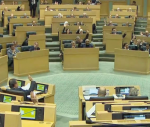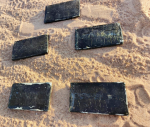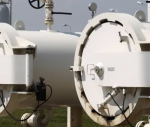You are here
Reason to do better
Nov 14,2016 - Last updated at Nov 14,2016
According to the recently published Fragile States Index, on which the Fund for Peace ranks 178 nations based on their levels of stability and the pressures they face, Jordan ranks 77th, four places lower than last year.
This drop is attributed in no small measure to the challenges the country is facing due to the repercussions of the armed conflicts in neighbouring Syria and Iraq, mostly the former, from where about a million-and-a-half refugees came pouring into Jordan, putting enormous strain on the already overstretched resources.
The Fragile States Index is a tool that highlights not only the normal pressures that all states experience, but also identifies when those pressures are pushing a state towards the “brink of failure”, according to the Fund for Peace.
While such ranking of a country’s level of stability and security is not a precise science and depends, at the end of the day, on subjective assessments, it is based on “millions of documents” that “are analysed every year, and by applying highly specialised search parameters, scores are apportioned for every country based on 12 key political, social and economic indicators and over 100 sub-indicators that are the result of years of painstaking expert social science research”, according to the report.
The reading of the indicators also remains a subjective exercise, but should not be dismissed.
A perfunctory look at the charts shows that while Jordan stayed almost level with last year in “state legitimacy”, “factionalised elites” and “external intervention”, “public services” and “security apparatus” slipped slightly, and they should not have.
These last two categories are important to the population and the country’s security and should be seriously addressed.
The good news is that in “human rights and rule of law” the country fared better than last year. In a region where these precious assets are almost non-existent, the Kingdom can take pride in steadily improving them.
Economically, the country’s already limited resources have been further taxed by waves of refugees and the closure of traditional Arab markets to Jordanian products, mostly agricultural, due to war and instability.
So it can be said that the negative indicators are not necessarily the making of only the country or its people.
Had the regional situation been different, Jordan would have been in a much better place.
The country has made considerable progress in the democratisation process and its economy, even though under the impact of external circumstances, is doing relatively well.
That does not mean that the government may relax its vigilance. On the contrary, it must continue efforts to improve both the economy and the security preparedness, without departing from the democratic path.













